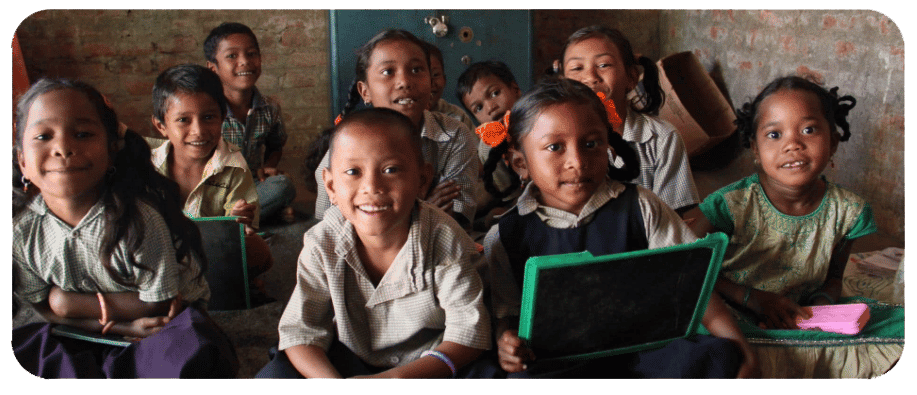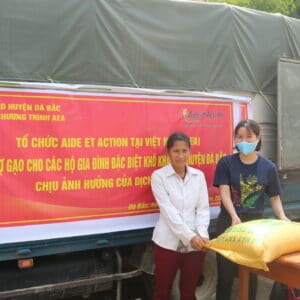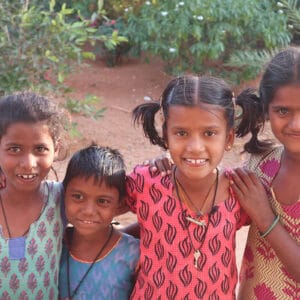
The sudden lock down imposed by the Indian government with a view to clamp down the spread of Coronavirus has had a devastating effect on migrant workers in India. With work on construction sites now stopped, these populations are being deprived of their only sources of income, and facing even more stigmatization as they are forbidden to return to their villages of origin. These migrant workers are in a particularly precarious situation. To guarantee their survival, their safety and preserve their dignity Aide et Action has initiated an immediate response and adapted its “usual” activities to address the emergency.
In India, as the lockdown prompted employers to close their enterprises, the cities that were highly dependent on migrant workers have suddenly turned deeply inhospitable to them. Deprived of all sources of income and lack of other options, thousands of migrants have been forced to leave urban areas, trying to return to their villages of origin hundreds of kilometres away. To ensure their survival and that of their families, they hit the road, on foot, carrying children and personal belongings, facing the wrath of the law enforcement agencies, which had strict orders to stop people from moving. Due to a lack of proper guidelines and appropriate support, the migrants have been forced to take reckless risks, even if it means starving and being exhausted in the absence of relief camps. Treated as criminals, many were sprayed with “disinfectant” by the state authorities in the most inhuman way.
Faced with this dramatic situation, Aide et Action immediately swung into action, across six cities in the country – Delhi, Patna, Bhopal, Bhubaneshwar, Hyderabad and Chennai – where our interventions are already operational. Our teams advocated for their rights and entered dialogues with the brick kiln owners and construction companies to provide shelter and food rations to the migrant families until the lockdown period is lifted. Our advocacy work with state governments has resulted in the inclusion of migrants in their support program by providing them ration kits. On the whole, 5,000 migrant families have now received dry ration.
Our volunteers, usually working with children from migrant families, have initiated health and hygiene education activities for the families who remained in the cities, in spite of several challenges. “We also migrated from our homes and our own families in order to be present with migrant families and thus carry out educational activities for their children. While our families are in the villages, we too are confined, but we continue our work to support these populations”, says Suvendu Panda, a volunteer from Odisha working in Telangana.
Elsewhere, Aide et Action is reaching out to over 1,000 stranded migrants across other cities. “I received information from AEA’s Migration Information Resource Centre about the migrants stranded in Tirupur, Trichy, Kanchipuram and Chennai. We immediately coordinated with the district & mandal administration and we were able to rescue and screen around 200 people.” says Prakash Raj, Programme Officer – Chennai Region, Aide et Action.
For those migrants who managed to return to their villages, we have started collecting data which will be provided to the district administrations for entitlements. In the rural areas, especially in the three migration source districts of Balangir, Bargarh and Nuapada in Odisha, we have created a virtual community volunteer network in 42 gram panchayats. This group, constituting 225 volunteers from 176 villages, is monitoring the health of repatriated migrants and supporting the government in providing institutional quarantine facilities. This virtual community network is soon to be replicated across all our migration interventions in India. We are also in the process of setting up Panchayat Resource Centres where migrants and communities will have access to information related to COVID-19.
We are also continuously providing crucial perspectives to various agencies including UNICEF, corporate and government, so that together we can provide an appropriate response to the issue of migrant workers in these challenging times of COVID-19. “Our experience of educating the migrant population in India has helped us gain a unique perspective on the issues of migrants. This has helped us devise quality programmes at short notice for the benefit of migrant workers and their families,” says Umi Daniel, Director – Migration & Education, Aide et Action.




